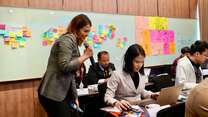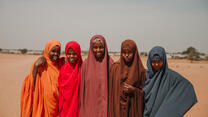The ParticipACTION project is designed to amplify young voices (aged 16-23), particularly those of third-country nationals (TCNs), migrant youth, women, and girls, in decision-making processes across local, national, and EU levels. This report, based on desk research, focus group discussions (FGDs), surveys, and interviews conducted in France, explores young people’s awareness, knowledge, and involvement in democratic life, the barriers they encounter, and proposed solutions. Key findings indicate that many young people in France possess limited knowledge of EU institutions and programmes like Erasmus+ and the European Solidarity Corps, with significant knowledge gaps persisting despite a growing sense of European citizenship among some. Engagement levels vary, showing a trend towards stronger involvement in local initiatives due to a more tangible sense of belonging, while the EU is often perceived as complex and distant. Major barriers to participation include administrative complexity, misconceptions about programme eligibility, and significant psychological barriers where youth do not perceive themselves as legitimate participants in EU spaces. Social inequalities, discrimination, and economic insecurity disproportionately affect marginalised groups, further limiting their involvement. Proposed solutions from young people and stakeholders consistently underscore the need for increased civic education, direct exposure to EU institutions, peer-to-peer learning, and proactive, inclusive outreach. Recommendations for policymakers focus on strengthening civic education, implementing inclusive policies addressing social inequalities, building trust through transparency, and providing adequate material and mentorship support to ensure equitable access to opportunities for all young people.
Report
Our efficiency
- 87% Program services
- 7% Management and general
- 6% Fundraising
Copyright © International Rescue Committee, 2026.



